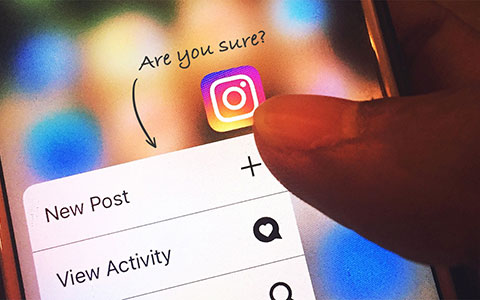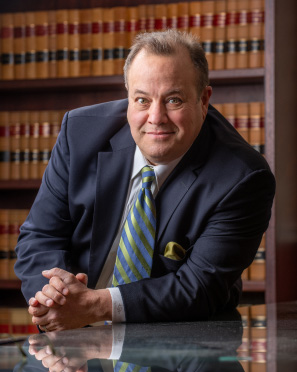Rhode Island Car Accident Lawyer
Posting to Social Media

Mistake #4
Mistake #4 Posting to Social Media
![]()
While the mistakes in this book are not ranked in order of importance, posting to social media deserves an early mention because of how important it is.
There will soon be more than 2 billion monthly active users on Facebook, so it’s clear that social media has forever changed the way we communicate. Less obvious, but more important for your accident claim, is the fact that social media has given insurance companies a new way to undermine your accident claim.
Slate’s “Evidence of Life on Facebook” provides an excellent look at how social media has been used to undermine an accident victim’s legal claim. One of the examples was a case where the emotional state of a victim on social media was used to actively undermine her claim.
The woman’s car was rear-ended while she drove to work, so she sued the man who caused the accident. The woman claimed she was left with chronic pain and a loss of enjoyment of life. In addition, she also argued she could no longer dance with family like she was used to doing and could no longer wrestle and roughhouse with her brother. Her claims were significantly undermined when Facebook pictures revealed her happily dancing and being lifted into the air by her brother soon after the accident!
The woman said that the pictures were fake, but the judge said that whether they were fake or real did not matter. All that mattered was the photographs provided proof that the pictures were taken in an active social setting in a way that demonstrated the accident victim was enjoying life, thereby harming her claim stating she was left with “a loss of enjoyment of life.” Examples like these put a realworld face on the fact that what you post on social media can and will wreck your accident claim if you are not careful. Here are a few ways social media can harm your accident case if you do not implement wise social media practices over the duration of your case.
The Insurance Company May Try to View Your Accounts
Your social media profiles are a potential treasure trove of information for the insurance company to access and undermine your claim.
- What have you been doing since your injury or disability?
- Have you been enjoying life just a bit too visibly to justify pain and suffering damages?
These are the types of questions an insurance company will try to ask if they gain access to your profile. This new area of defense, as the Slate article shows, has been used to a good degree of success in recent years at trial.
Social media posts, pictures, and videos are now a potential weapon to be used against you. In fact, even the social media pages of friends can be used against you!
The Slate article also told the story of a plaintiff who claimed she was wrongly terminated as a manager at Home Depot, and was socially isolated from her friends as a result of the termination. The opposing counsel successfully argued that dozens of “Happy Birthday!” messages on Facebook from friends showed that she was not actually socially isolated.
Of course, this was not an accident case. But it does show that the most innocent social media posts like birthday greetings can be used to harm your claim.
Suppose that a friend finds out that you were in an auto accident and asks how you are feeling. As mentioned earlier, imagine you just want to make the best of a bad situation by telling them, “I’m okay.”
An insurance company or opposing counsel that accesses that information will use it and attempt to distort it into demonstrating that your injuries are not as serious as you claim. Think back to the My Cousin Vinny example cited in the section on Mistake #3, and you are on the right track.
Don’t let social media posts get distorted in a way that raises doubt in a jury’s mind. Doubt about whether you are truly hurt can be the make-or-break difference in your case. There are no do-overs for social media mistakes.
Programs and software exist today that allow users to retrieve information that was previously deleted.
As a general rule, it is best to simply stay off of social media until your case is resolved. Here are five valuable social media tips and best practices that will benefit your auto or motorcycle claim.
Social Media Tip # 1: Update Privacy Settings
If your profile is public, everything on your account is fair game to prying eyes. This can spell disaster for your case. The most important thing you can do if you have not done so already is to limit access to your social media accounts by making them private.
Insurance companies and opposing lawyers will have a difficult time using social media against you if they have to work harder to see the pictures and information you post.
Opposing counsel will have a hard time justifying a subpoena request to access your private account information, whereas public profiles are the easiest thing in the world to access.

Have you been injured in rhode island?
Social Media Tip # 2: Download Complete Records of Your Accounts
One thing insurance companies or opposing counsel may try to do is claim they have social media evidence that harms your case. This tactic can be used to get you to accept a lower offer than you deserve.
Don’t fall for the trap. Prepare in advance by downloading hard copies of your social media account. Having physical records will help you dispute false claims with hard evidence.
Social Media Tip # 3: Adopt a Policy of Silence for All Things Case-Related
If you follow only one social media tip, make it this one. Do not talk about your case at all online, not even with your best friend via private messages.
Posting updates and opinions about the case is also a poor decision, and it is unnecessary. Let your attorney advise you on legal matters, and don’t share what your lawyer said to you on social media. This can tip off opposing counsel or the insurance company, needlessly giving them more time to counter the arguments that favor you.
Your family will want updates, but limit those to in-person conversations.
Social Media Tip # 4: Ask Friends and Family to be Silent
Well-meaning friends and family can do far more damage on social media than an insurance company or opposing counsel. You need to make sure your friends and family don’t harm your case by discussing it on social media. Also, understand that your friends can tag you in posts that show what you are doing or where you are.
This is valuable information for an insurance company. If you have been jet skiing after claiming serious leg injuries and back pain, a tagged post from a friend can seriously jeopardize your right to deserved compensation.
Let your friends know in advance not to talk about your case online or tag you/share photos of you until the case is resolved.
Social Media Tip # 5: Talk to Your Lawyer Before Deleting Information
While you need to be careful about your social media use, don’t overreact and delete all your accounts and posts before talking to your accident lawyer.
There may be an ethical duty to preserve evidence if you or your friends have already talked about the case. Your lawyer can help you minimize the fallout of any mistakes without adding ethical violations on top of them.
Doing so will needlessly harm your case. It’s best if you stay off social media altogether, but always keep your lawyer informed so he or she can help you avoid any roadblocks or needless issues that can and will hurt your case.
While on the subject of discussing issues with your lawyer in complete transparency, failing to be honest in conversations is another common mistake that can ruin your case.
Rhode Island Car Accident Lawyer
9 Common Mistakes that Can Wreck Your Auto Or Motorcycle Insurance Claim
Finding the Best Rhode Island Car Accident Lawyer
![]()

Hiring a car accident lawyer in Rhode Island is an important decision. The best attorneys are able to evaluate your case quickly and provide advice so you can make an informed decision. No attorney should ever pretend to know the exact value of your case in advance, and you should never pay for an initial consultation. The law office of Louis W. Grande handles car cases on “contingency” contracts, meaning that you never pay unless we win your case.
Contact US Today
100% Confidential. No fee or cost unless you win your case.
Proudly Serving All of Rhode Island Since 1990
![]()

